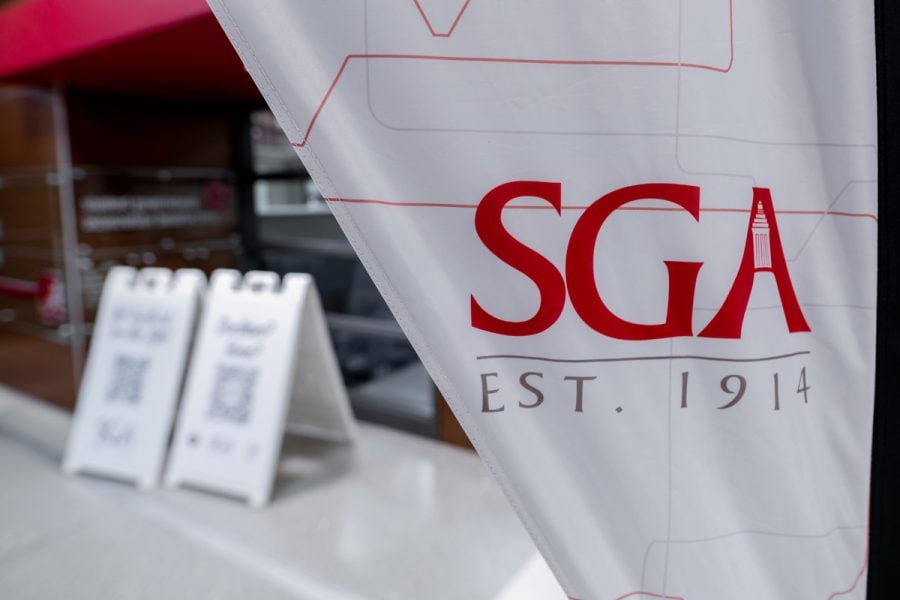Senate sends bill revising block seating rules to committee
November 4, 2022
The SGA Senate sent a bill that would change the application process for student organization seating at athletic events to the Student Affairs Committee during its session on Thursday, Nov. 3.
Luke Dille, one of the authors of the bill and the SGA vice president of student affairs, said the point of the Student Organization Seating bill is to update the SGA Code of Laws’ language and make the application process “a lot more straightforward and commonsense.”
Dille said the current application process for student organization seating is too arduous and unrealistic for many people to apply, and that the new bill will simplify the process should it pass.
“It makes everything … easier for smaller organizations,” Dille said. “It makes it more equitable for all organizations regardless of purpose, creed, size; really anything.”
What would it change?
The bill would change the number of members of the board of governors, the group that directly oversees which organizations can participate in Student Organization Seating, from nine voting members to 14.
Students would be able to apply to be a member of the board of governors through the SGA website.
The bill would also change the process for determining which student organization would get a favorable seat in athletic stadiums. To calculate the score, 34% will come from the organization’s GPA, while 33% will come from ‘Organization Presentation’ and the final 33% from ‘Community Involvement,’ according to the SGA docket.
An organization’s GPA would be evaluated by calculating two-thirds of the seats the organization applied for and averaging that many of the organization’s students’ GPAs together.
The presentation would be graded on five categories: safety in Bryant-Denny Stadium, value to gameday experience, diversity, service efforts/philanthropic achievements and leadership.
Dille said these new categories would allow the board of governors to measure eligibility in more “quantifiable ways” without “suspected bias.”
The organization presentation would replace the packet that student organizations currently must fill out to apply for seating. The application packet is worth 40% of an organization’s SOS score under the current rules. The presentation would also replace the “Campus and Gameday Experience Interview,” which currently makes up 20% of the SOS score according to the SGA Code of Laws. GPA makes up the last 40% of the score under the current rules.
Dille said this change clarifies the language of the Code of Laws, as many recent interviews mirror presentations.
For the community involvement section of scoring, its 33% will be subdivided equally among DEI passport certification, Bama Pulse Service Hours served and Tide Loyalty Points earned.





















